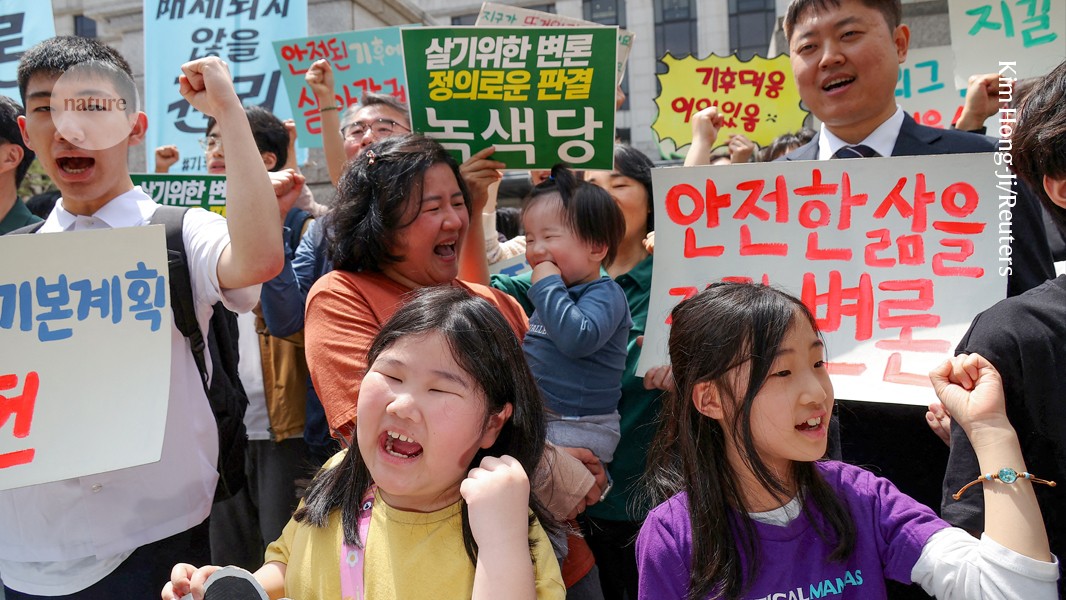After Swiss grandmothers, whom the ECtHR last month found right in a case against their country's government for failing to protect the environment, it's now the turn of babies in South Korea.
This Tuesday, the South Korean Constitutional Court will hold the second and final hearing of a climate lawsuit brought on behalf of newborn children - and even an unborn child.
According to Nature, involved are babies, children, adults and even unborn children, who have filed petitions to sue the South Korean government for not doing enough to combat climate change.
The signatories claim that the government's climate goals are too weak, threatening their right to live in a healthy environment.
Although this lawsuit is unique in East Asia, similar cases have already been filed in countries such as the United States, Canada, Australia, India and Brazil.
"If we have a favorable precedent in South Korea, it will be a factor in spreading this trend," says the legal advisor for the case in Seoul, Sejong Youn.
The first hearing took place last month.
The case brought before the court is the result of the merger of four similar cases that were filed between 2020 and 2023. One of the four cases was filed by parents on behalf of their children, including a then unborn child, nicknamed Woodpecker, who is now one year old.

"Normally, we get human rights when we are born," says Masako Ichihara, climate litigation researcher at the Climate Change Adaptation Centers.
The Woodpecker is a symbol of how society must protect future generations, even unborn ones, from the impacts of climate change.
A ruling in favor of the South Korean plaintiffs could inspire climate activists inside and outside Asia. "It's a large and significant case in Asia," says Ichihara.
Currently, the South Korean government aims to reduce greenhouse gas emissions to 40% below 2018 levels by 2030.
In the region there is a growing awareness of climate change. "In China, especially in mainland China, in recent decades, climate awareness is definitely growing," says Mingzhe Zhu, a researcher at the University of Glasgow.
"If the plaintiffs lose the case, it will be less likely that the Constitutional Court will agree to look at climate-related cases again, but that shouldn't be seen as a failure," concludes Zhu.





